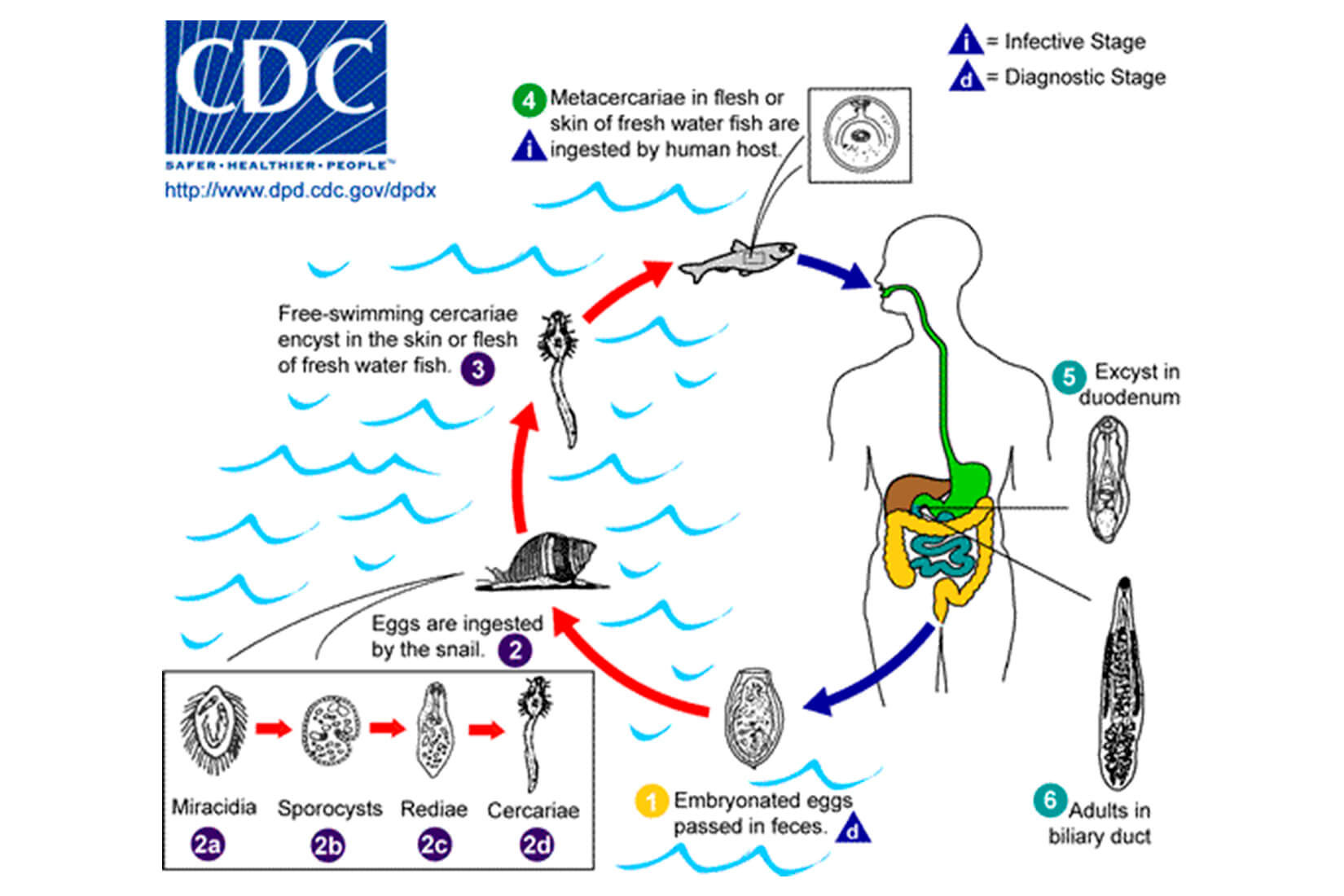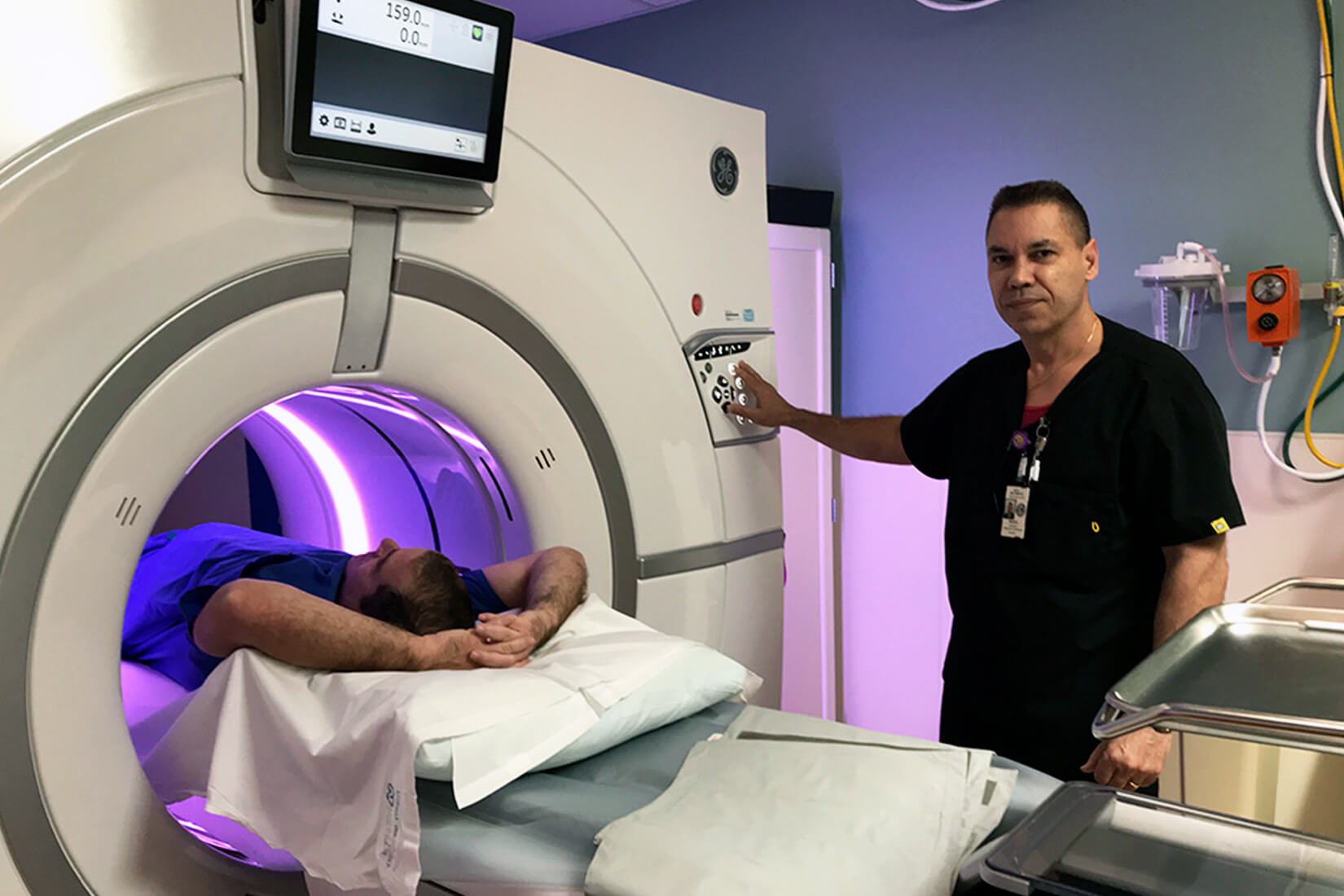ST. LOUIS—Current clinical guidelines recommend the use of beta blockers in all heart failure patients with with reduced ejection fraction (HFrEF). Which beta blocker to use—carvedilol or metoprolol succinate—remained unclear, however, according to a...
VA’s Use of Conservative Management for Prostate Cancer Sets Standard
The VA is taking a leading role in use of conservative treatment for veterans diagnosed with non-aggressive prostate cancer.
VA Launches Study to Address Liver Fluke/Bile Duct Cancer Concerns
A recently launched VA study of mortality in Vietnam veterans will examine whether exposure to liver flukes, a parasitic worm, increased the risk of cholangiocarcinoma or bile duct cancer in those veterans.
Algorithm Proposed to Improve Detection of MS Lesions
Magnetic resonance imaging (MRI) is considered crucial for in vivo detection and characterization of white matter lesions (WMLs) in multiple sclerosis.
Many Survey Respondents Say Marijuana Is Good for MS
Despite insufficient evidence regarding its risks and benefits, marijuana is increasingly available and aggressively marketed to the public, according to a new study which sought to understand the public’s views on the risks and benefits of marijuana use.
Incidence of NK/T-cell Lymphoma Rises Significantly in the United States
Limited data are available regarding the incidence, survival patterns, and long-term outcomes of natural killer/T-cell neoplasms in the United States.
Early Therapy Helps Prevent Non-Hodgkin lymphoma, Other AIDS-related Cancer
Prevention of AIDS-defining cancers, such as non-Hodgkin lymphoma, can be helped by early, sustained antiretroviral therapy, which results in long-term viral suppression, a new study found.
Zika Infection Had More Serious Effects in Older Veterans With Comorbidities
Zika virus infection had affected more than a half-million people in the Western Hemisphere by the end of 2016. Among those were more than 700 VA patients with confirmed or presumed possible infection.
VA Study: 76% of Primary Care Prescriptions Deemed Inappropriate
The VA’s success in reducing unnecessary antibiotic use in its hospitals has not trickled down to its outpatient clinics.
Cautious Use of Prandial Insulin Urged for Older Veterans
A new VA study pointed out why prandial insulin should be used cautiously in older adults with complex comorbidities.
Adherence to New Medications Is Critical for Veterans With Diabetes
How important is adherence to oral medications in reducing complications for veterans with diabetes?
VA Research Links Global Air Pollution to Diabetes Risk
Air pollution, even at levels technically falling into safe ranges, are associated with an increased risk of diabetes, according to a new study involving VA researchers.
Memory Problems Worsen Survival Rates in Older Blood Cancer Patients
About a third of hematologic cancer patients in a recent cohort study screened positive for executive dysfunction, and more than 17% had memory problems.
New VA Analysis Refutes Link Between Heart Failure, Incident Cancer
With about 350,000 patients with heart failure diagnoses being treated in the VHA, recent studies suggesting that the cardiovascular condition increases risk of cancer have been worrisome.
Too Little Sleep? Army Research Suggests Correct Caffeine Dosage
The Army’s Performance Triad promotes quality sleep, physical activity and good nutrition, but when sleep suffers, a new tool developed by the Army can help.
Even Mild TBI Can Dramatically Increase Risk of Developing Parkinson’s Disease
Mild traumatic brain injury, commonly known as concussion, appears to increase a patient’s risk of developing Parkinson’s disease by as much as 56%, a new veterans study found.
Medications, interventions underused in veterans with peripheral artery disease
Nearly 30% of veterans with peripheral artery disease (PAD) die within four years of diagnosis, while others experience limb amputation or critical limb ischemia.
Rank as socioeconomic proxy affects stroke outcomes in MHS patients
Do socioeconomic disparities exist in the U.S. military healthcare system with ischemic stroke admissions? A new study says they do.
Psychologist works to make mental health units safe for suicidal veterans
Most people looking at a hospital room will see an environment specifically designed to keep human beings alive through even the most traumatic circumstances.
As burn pit registry grows, VA expands research into related lung disease
The potential cost to the VA for lung disease associated with deployment to Iraq or Afghanistan shot up this year when an administrative law judge with the U.S. Department of Labor ruled that exposure to open-air burn pits caused a veteran’s lung disease.
Even mild TBI increases veterans’ dementia risk
The risk of dementia is increased even in veterans who suffer mild traumatic brain injury (TBI) without loss of consciousness.
Deep brain simulation extends Parkinson’s survival
Deep brain stimulation (DBS) not only improves motor function in patients with Parkinson’s disease, as demonstrated in earlier studies, it also appears to extend life, according to new VA research.
Gene variant plus TBI worsens symptoms
A gene variant used to predict Alzheimer’s disease also appears to signal worse psychiatric symptoms in patients who have suffered a traumatic brain injury (TBI), a new study reported.
UTI reduction initiative has little effect at VHA nursing homes
In community-based, long-term care facilities, collaborative programs have been successful in reducing catheter-associated urinary tract infection (CAUTI) rates.
Thyroid status affects death risk in veterans with CKD
Patients with nondialysis-dependent chronic kidney disease (NDD-CKD) have a disproportionately higher prevalence of hypothyroidism compared with their non-CKD counterparts.
Wounded Warrior receives first penile/scrotum transplant
Genitourinary injuries were one of the signal wounds from the wars in Iraq and Afghanistan.
Suicide risk under-appreciated among advanced lung cancer patients
Much of the focus on suicide at the VA is on recently discharged servicemembers who suffer from conditions such as depression or post-traumatic stress disorder (PTSD).
Regular CPAP use improves women’s sexual quality of life
SEATTLE — Long-term use of continuous positive airway pressure (CPAP) treatment for obstructive sleep apnea improves a range of health markers including, for women, improvement in sexual quality of life. That’s according to an observational study in JAMA...
Underuse of CPAP, related problems more common with nonobese veterans
Low respiratory arousal threshold (ArTH) is common among veterans with obstructive sleep apnea and appears to be linked to underuse of CPAP therapy, according to a new study.
Study identifies which veterans are at greatest risk for sleep apnea
Central sleep apnea (CSA) in veterans is associated with cardiovascular disorders, chronic prescription opioid use and increased hospital admissions related to those issues, according to a new study.







